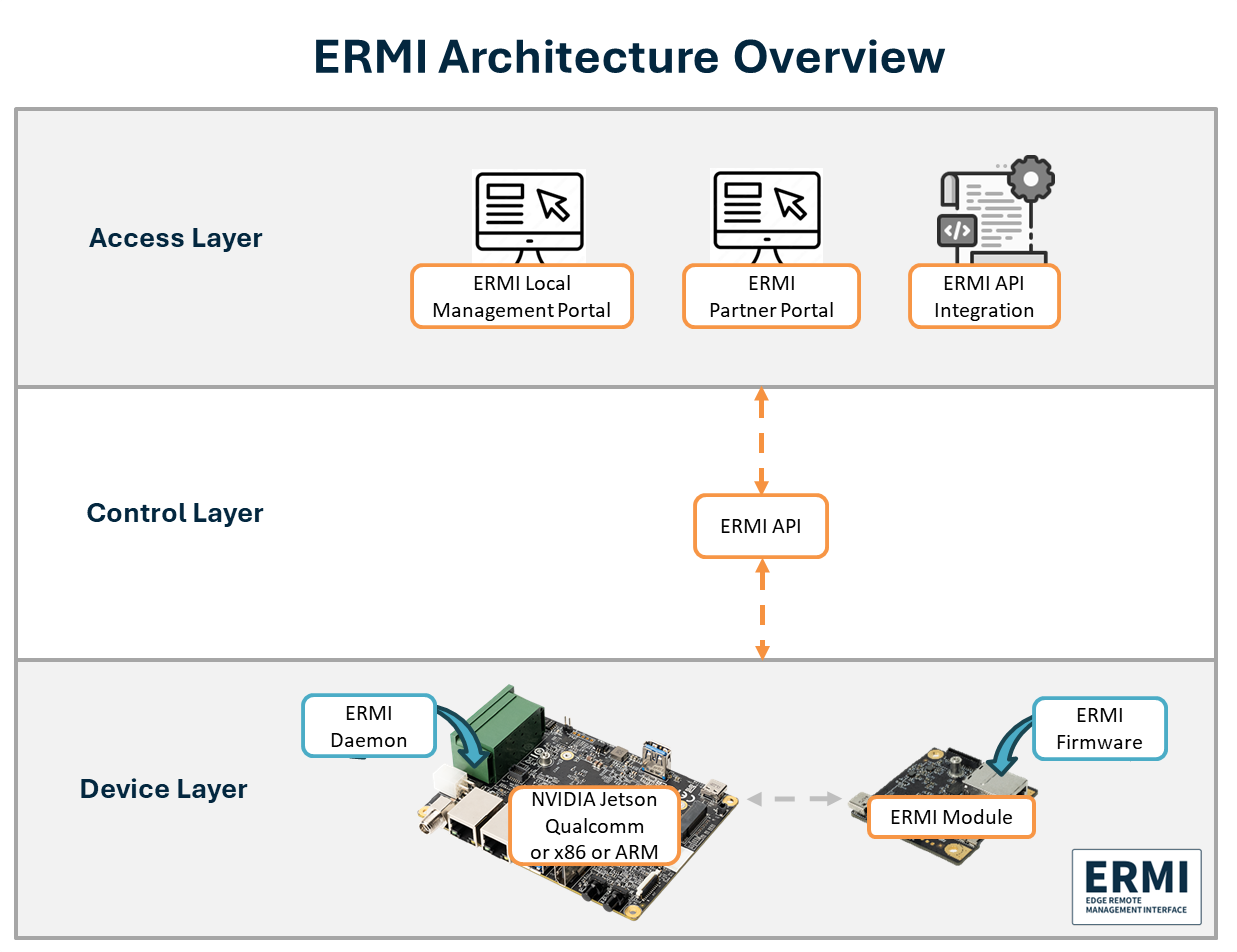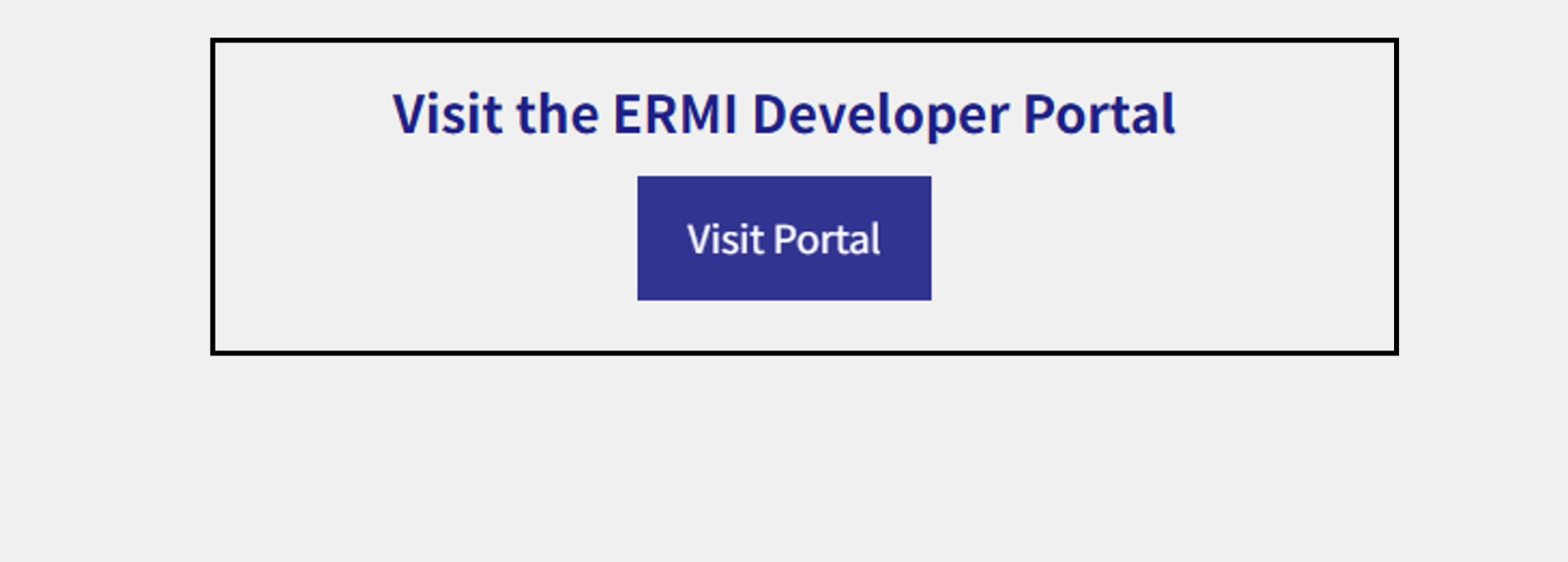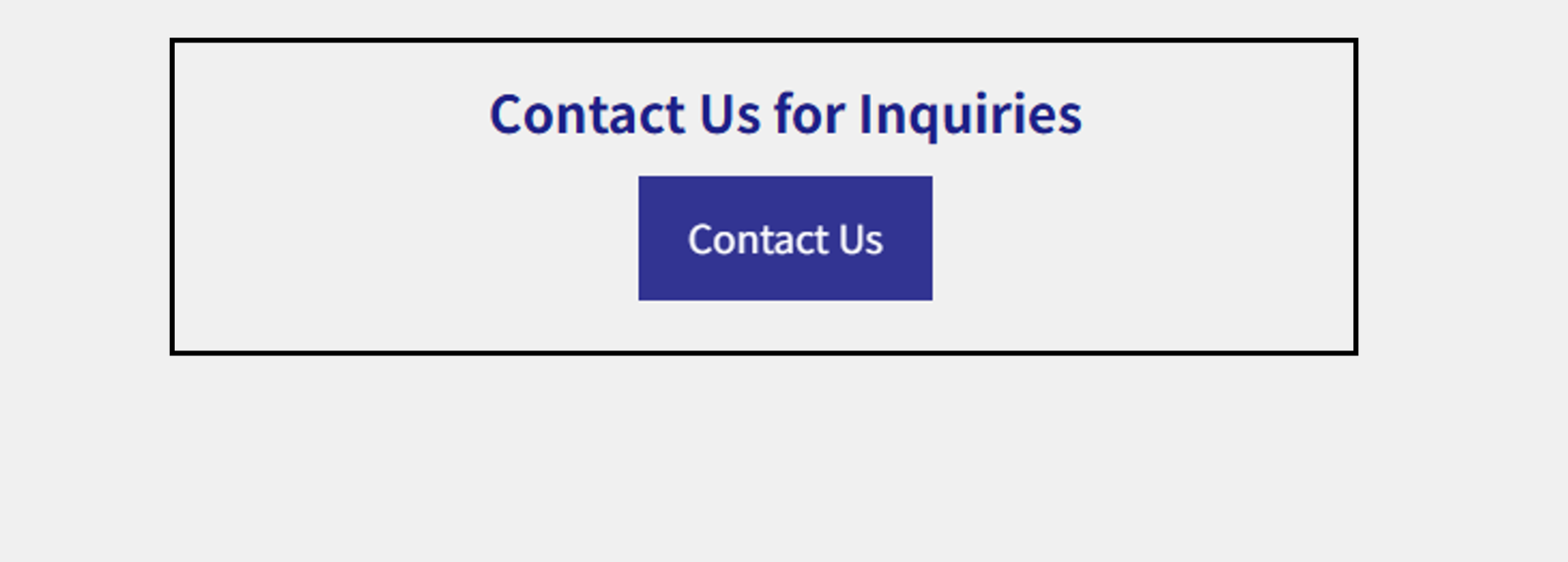ERMI Series - Edge Remote Management Interface (ERMI) API
Out-of-Band (OOB) Management
Out-of-Band (OOB) Management is a remote device management technology that operates through a dedicated channel independent of the host operating system. It allows administrators to control and maintain devices even when the OS has crashed, the network is down, containers have failed, or the device is otherwise unreachable through in-band methods.
AVerMedia Edge Remote Management Interface (ERMI)
Edge Remote Management Interface (ERMI) is a lightweight yet powerful API framework designed by AVerMedia specifically for out-of-band (OOB) device management at the edge.
Built on the industry-standard Redfish® protocol, ERMI provides consistent endpoints for essential OOB functions such as power control, serial console access, system health monitoring, and event subscription.
By integrating ERMI into your platform or control portal, you can deliver real-time visibility and resilient management capabilities across diverse edge AI deployments.
Key Features of ERMI
ERMI simplifies out-of-band management at the edge with a complete set of operational, configuration, and security controls—all powered by a standardized, developer-friendly Redfish API for easy integration.
Operational Controls | System Configurations | Security and Monitoring | Native API Support |
|---|---|---|---|
|
|
|
|
ERMI's Redfish-based API Support
Redfish-based API formed the backbone of AVerMedia's ERMI. As Redfish is a standardized, RESTful API for managing converged and hybrid IT infrastructure, there are several benefits associated with it:
Open standard, vendor-neutral: Avoids lock-in, ensures interoperability.
Works even if the OS/container is down: Devices can be recovered when in-band tools fail.
Secure and compliant: HTTPS/TLS, RBAC, and versioned schemas reduce security risks.
Developer-friendly: REST and JSON mean near-zero ramp for web-savvy engineers; works with curl, Python, Postman, Ansible, Terraform, and more.
Why Use ERMI API?
By extending the Redfish standard, ERMI API brings practical advantages for edge deployments—making recovery reproducible, automation seamless, and large-scale management more consistent and secure.
Software-defined recovery
Perform actions such as reboot, UEFI boot override, and Virtual Media mounting via API calls that are reproducible in CI/CD or IaC. Eliminates ad-hoc SSH sessions and manual KVM work that reduces human error and allows you to rehearse recovery workflows in test environments.
Automation-ready
Integrates with monitoring/CI tools to auto-generate scripted recovery workflows.
Role-based access and auditability
Secures high-risk actions with role-based access.
Consistency at scale
Batch operations via API across large device fleets are faster and more consistent than manual steps performed per node, reducing human errors.
Key Benefits of ERMI API
ERMI is more than just an API—it is a framework built to reduce downtime, strengthen governance, and accelerate scale-out edge operations.
Operational
Lower MTTR, fewer truck rolls: Restore service in minutes rather than hours/days by avoiding on-site dispatch.
Safer rollbacks: One-time UEFI override and image ejection provide reversible paths that leave the disk state intact until validation is complete.
Air-gapped continuity: Offline bundles (images/configs/scripts) enable container replacement with zero external connectivity.
Security and Governance
- Standards-based control plane: HTTPS/JSON and RBAC via Redfish centralize access control and reduce the risks associated with bespoke tooling.
Scalability and Engineering Velocity
API-first automation: Encode recovery as idempotent runbooks in CI/CD and IaC, enabling teams to test, simulate, and ship with confidence.
Fleet consistency: Schema-driven, cross-vendor Redfish removes vendor-specific snowflakes and simplifies large-scale operations.
Performance and Cost
OpEx reduction: Fewer truck rolls, shorter outages, and reduced manual work lower operating costs at scale.
Higher uptime: Consistent recovery reduces SLA breaches and downstream business disruption.
Environmental and Business Continuity
Lower carbon footprint: Reduced on-site dispatches cut emissions for distributed deployments.
Predictable RTO: Deterministic recovery flows turn emergencies into scheduled, measurable procedures.
For more information:
×




